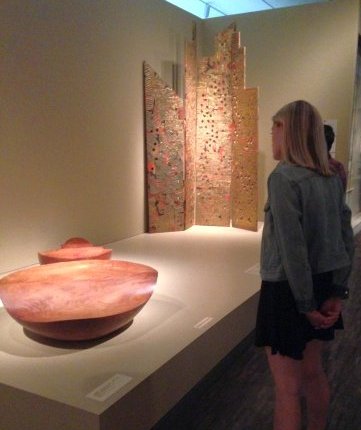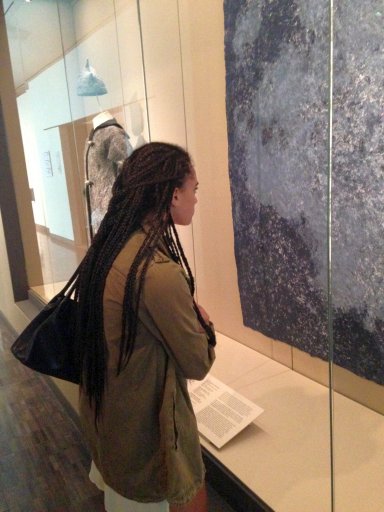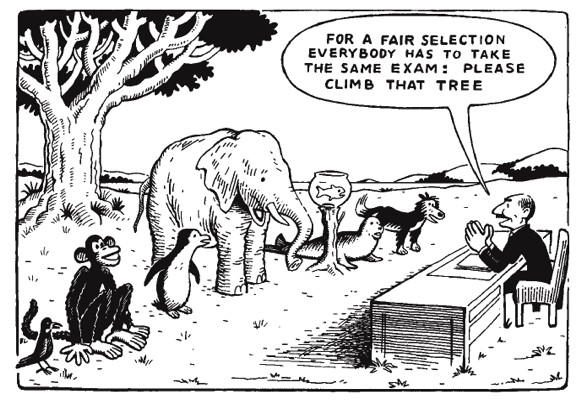HUM 375 - Biography of a City: London
Welcome to the course.
This syllabus defines course objectives, learning activities, requirements, and grading policies. If anything is still unclear, come see me in the office—my hours are conveniently located right after class, and my office is in HUM 530.
Here are my Teaching Policies and Mark Policies.
SPECIAL NOTICE: You have to buy exactly the editions of these books I assign, and bring them to class, or the highest you will earn in the course is a C. “But there’s a copy of Dante for free online” students in another course tell me. Yes, and it’s from 1829! That’s why it’s free, nobody wants it. I picked these editions very carefully for you. Buying them and bringing them to class, not mooching off good students, is required! I am so serious about this.
This syllabus is our learning contract. To be admitted to the course, after you have finished reading, email back to say, "I read the course description in the email and I still choose to remain in the course."
In the Subject, put only this, to get credit: LONDON AGREEMENT EMAIL 1
Reply to this email before our first class. Bring Tix or receipts to first class. To be sure you get credit, print your name clearly on ticket and write LONDON
Class will start 15 minutes late the first day, only, to give everyone a chance to find the room. Here’s the good part. If you hand tix in at our first or second class, you will get a bonus on the next test or quiz. II want you to build up some insurance in case something goes wrong on a test later. If you hand it in at our 3rd class, you get an "OK." If you hand it in after our third class, you will get a minus on the next test or quiz. If you never hand it in, you will get an F on the next test or quiz.
Self-Guided Museum Assignments
These self-guided museum trips are due before the course begins. Go to our iLearn site and find this assignment.


Course Objectives
In college we don’t give you an education. We teach you how to keep educating yourself for the rest of your life. That’s why college graduates earn nearly three times as much as people who haven’t had this kind of training. College grads know how to keep up with the world, how to keep learning, evolving and adapting. Each course should equip you to keep educating yourself in a specific subject. By the end of the course, you won’t know everything, but you should know enough to keep learning about it on your own.
This course’s objective is to teach you enough, in one semester, to enable you to keep learning about London the rest of your life. Each of the course’s extremely varied learning activities (lectures, slide lectures, selections from great films, museum visits) have been selected because they were keys that would make it possible for you to open the greatest number of doors later.
This course’s second, very practical objective is helping SFSU students break the “glass ceiling” after they graduate. Everyone knows about the obstacle that race is, in American life. The forbidden topic in American life is “class.” This is still a “class” society. At some point certain people get hired or promoted—and others bump their head against the “glass ceiling” without knowing why. Nobody wants to explain that you’re supposed to be able to recognize a reference to certain classic movies, books, and painters, you’re supposed to have been to London or Europe at least once. The museums are no longer about art, they’re social clubs for the white collar class. If you’re not a member, at least you’re supposed to have been. “Class.” Now, what in the world does that have to do with whether you can do the job? These little social tests are absolutely superficial—and absolutely real. This course, like my HUM 130 and HUM 407 aims at helping you compete after getting your degree. This is a very practical course for SFSU students. I’ve taught here 29 years, have written countless job recommendations, and I know what I’m talking about.
Therefore class topics were selected with this special methodology in mind: HUM 375 equips you to have the very fullest experience of London when you visit, even for just a brief vacation trip to London. Many HUM 375 students do go to London afterward, since it’s the gateway to Europe. Many more of our students are preparing for a semester or a year of Study Abroad in London or Europe. The good news about preparing to break the glass ceiling is that it’s exciting and enjoyable.
People who have taken BIOGRAPHY OF A CITY: LONDON have tended to be people who planned to visit London or the British Isles, and wanted to get the most out of their visit, and people thinking about studying abroad for a semester, or even for a year, in England and/or France. Now that you can get from downtown London to Paris in two hours on the bullet train, it's easy to combine the two.
Trains to Paris | Cheap Eurostar Tickets | Train Deals to Paris | Paris from £69 | Eurostar
Airplane is cheaper but then you're stuck for two long expensive taxi rides on each end. There's an extensive Travel Project in which you compose a day by day itinerary, all costed out, of what you'd do on a trip to London. It's aimed at showing relatives that if they fund your trip, not a penny would be wasted. It's described below with samples.
By preparation for London, I mean the sort of education which teaches you about the history of a given spot, like the Tower of London, or St. Paul's cathedral. We have an excellent new book to support that by Boris Johnson. Johnson's Life of London: The People Who Made the City that Made the World.
You’ll notice then, that in our Boris Johnson textbook, a discussion of a cultural topic is always linked to a place in London that you can visit now and tells you what to look for when you’re standing there. HUM 375 London classes usually teach you a subject by linking it to a place that you will visit later. For instance, to understand why the Romans founded Londinium where they did, Johnson and I both explain what you’ll see when, someday, you’re standing on London Bridge. A chance to practice meditation with me in a museum to learn mysticism will open up how to look at John Constable, the greatest English painter, whose works fill their museums and whose beautiful river scenes lie right outside London. (When you’re in London, you’ll find there are even one-day bus tours of that area, now called “the Constable Country.” He’s that important.)
The course objective, therefore, is to equip you to understand and hopefully enjoy everything you’ll see. When you’re standing on London Bridge, or in the basement of a London church with Roman mosaics uncovered on its floor, everything you’ve learned about Roman London will come flooding back, not just as a chapter in a book, or a lecture in a classroom, but as something that really happened, and you’re standing right in it. That’s when half the learning will take place, when you’re there.
But I combine that kind of education with the fuller humanistic education which enables you to understand the full culture that you're encountering, through its art and literature. To go to England knowing nothing of Shakespeare or Jane Austen, Queen Elizabeth the Great or Benny Hill, Sir Laurence Olivier as Shakespeare's Henry V or Monty Python, is not to know England. You wouldn't understand what you're looking at or the culture of the people you were talking to.
The written centerpiece of the course is the long Travel Project, in which you’ll plan for yourself, in detail, an ideal ten day visit to London. (If you are planning to Study Abroad in a different European city, you can petition to have that changed.)
Course organization
The course, like our textbook, Johnson’s London, is organized to follow London’s history as it unfolds. Chronology helps. It makes sense to watch Mrs. Miniver, about a woman in a traditional London suburb during the WWII Blitz attack by the Germans, before watching selections from the Beatles’s Hard Day’s Night, or hearing “Strawberry Fields Forever.” It’s illuminating to realize that the nihilistic Sixties rebel John Winston Lennon (1940-1980) was born into Mrs. Miniver’s world during the Blitz, patriotically named “Winston” after Winston Churchill. As a child he played in the garden of Strawberry Fields, an orphanage filled with war orphans.
Though I can not specify exactly which day we will study a topic until I have read your Surveys and your personal biographies (each new group of students has different interests) and I reserve the right to cut topics or even books, depending on what’s working this year, here is the order you can normally expect. Browse through our Johnson textbook and you’ll get the feel of it.
“What is the Glass Ceiling and why are these our Course objectives: Working Girl” London Bridge and the founding of Roman Londinium. The Anglo-Saxon invasions, King Alfred and the Norsemen. Westminster Abbey, The Norman Conquest and the Tower of London. Becket (Peter O’ Toole and Richard Burton.) Medieval poetry. Shakespeare’s London. The London of Tom Jones. Jane Austen. Constable and Turner. The Victorian Empire and Dickens’ London. Gilbert and Sullivan. World War 1, Churchill, Appeasement, WW 2 and the Blitz. The end of the British Empire and the shattering of the English class system: Saturday Night and Sunday Morning, the Beatles’ London, Alfie, the Punk years, Margaret Thatcher, “the Iron Lady.” The current London architectural Renaissance. Challenges ahead.
Creating experiences which further learning
You’ll notice that SFSU’s course evaluations very intelligently do not say, “were there interesting lectures,” but “did the professor create experiences which furthered your learning.” This course uses every means of creating experiences—trips, slides, films, the works. We even use cuisine to explore and understand British culture. Do you know what to order in a pub? What if you're offered "pickle" or Ploughman's Lunch?
Caution: you do not have to take Prof. Leonard's course. Since the professor’s family is originally from #7 Raven Row, in the Cockney East End of London, he could claim that his methods show that influence, but actually he teaches in the world's oldest continuous teaching tradition—the Funny Jewish Professor (If you're not familiar with this tradition: I am not here to amuse you. You are here to laugh at my jokes.) Take a look at two modern masters of this tradition, Lenny Bruce and Richard Pryor. Would you find this interesting—or too intense, or obscene or unpleasant? Is this really the course for you? You do not have to choose this course.
Lenny, film, starring Dustin Hoffman, 1974, trailer
Many students in class have taken Leonard's other classes, sometimes all his classes, and they help him do his skits and shtick, the way Jimmy Kimmel’s “second bananas” standing on the side of the stage help him. They get extra credit for their help. Some of them have written gags for him to use. If you, however, are new to this ancient teaching method, and don’t want to participate in helping the professor create a “learning experience” involving humor, just tell him, and avoid sitting in the front row. If you have no sense of humor at all, you won’t enjoy this class, and should look for another.
But we're getting ahead of the story. What I'm saying is, this is not for everybody. You don't have to choose this course. There are plenty of other courses. Watch Fight Club. Would you find it stimulating to take a course with someone as intense as Trevor Durden, who creates experiences to shock people out of their normal way of thinking about things, and seems to have studied with Leonard's old friends?
Fight Club Trailer on YouTubeIs the class crowded because I mark on effort, so that people who don't test well can still get quite a high mark in here by getting out into the City, attending events, expanding their experience? That exposure counts, I believe. And one single kind of test does not reveal every kind of strength you may have. I go to conferences on this sort of thing, and at the last one, got this great cartoon:

I'm sending you this advance notice to help you make an informed decision. There's a lot of work in this course. The museums are our labs and they cost money, like books or your science lab fees. And there are Old School rules. No screens visible in class. No recordings of any kind can be made or you will be removed as "disruptive" and get an F. Take notes longhand. Wait for the break to use the bathroom (or to secretly answer your BFF's call). No teaching by email. All this and more is posted in my course policies, which you are required to read. Choosing to stay in the course means you agree to abide by them.
Required Reading and First Assignments
Student Survey
To begin, all students are to complete an assessment survey of their preparation and their needs. You aren't expected to have read or seen many of these works, so although the survey looks long, it's quick to complete. Instructions are on it. Click here for the survey
DEADLINE: one week from our next class.
My IT expert set it up so that there's a record of everybody who submitted the survey, although your name is not paired with your answer. Otherwise I wouldn't know who didn't bother to do it.
Assigned Reading
By preparation for London, I mean the sort of education which teaches you about the history of a given spot, like the Tower of London, or St. Paul's cathedral. We have an excellent new book to support that by Boris Johnson. Johnson's Life of London: The People Who Made the City that Made the World.
As soon as possible start reading a beautiful book, as entertaining as a novel. It is short and charmingly illustrated. (I don’t list every book at the bookstore because you can find cheaper copies online.) 1066: Year of the Conquest, by David Howarth
Get the Kindle version of Break Your Writer's Block, a writer's guide prepared for SFSU by Prof. Leonard. Do not get the older print version. The Kindle version is cheaper, anyway, and I've updated it. To read a Kindle book, you don't need an actual Kindle device from Amazon. You can read it on a physical device, like your iPad, your smartphone, or your Mac or PC at home. You can even use any computer on campus or elsewhere if you use Amazon's Cloud Reader. You just need an Amazon customer account.
In class, though, we use only print editions, no eBooks. They’re on the shelf together in the bookstore, and listed on the University’s page for this course, as well as mentioned below.
The University of Chicago Press has raised the price of the paperback version of my book on the figures in this course to nearly $25. I am substituting an inexpensive Kindle “course reader,” replacing it for $10. I was able to insert into the course reader lecture notes on John Constable, a central figure in this course. It’s called From Humanism to Mysticism, and it will be used with the museum visit.
Strongly recommended: a free ebook version of John Stuart Mill’s essay “On Liberty” to consult. Here's one from The Gutenberg Project, but any will do.
Museum Fieldwork Assignment
Travel Project
Each of my courses prepares you, ideally, to keep learning about its subject all your lives. A trip to Europe, even just for a few weeks, is an essential part of that learning. In this class, we'll help you take the first steps towards it. Listen in class, but to start, see my Travel Projects page.
What is this professor like?
I'm a working author and have to have a professional website. You can browse through my books here on my website and decide if my interests are similar to yours.
An old, but accurate, interview which shows how the professor's interests fit together: David Carrier Interview
Dated, but accurate -- lists books about Prof. Leonard's work, including ones critical of him. Note: 2015 was Prof. Leonard's 43th anniversary as a college professor. About Dr. Leonard